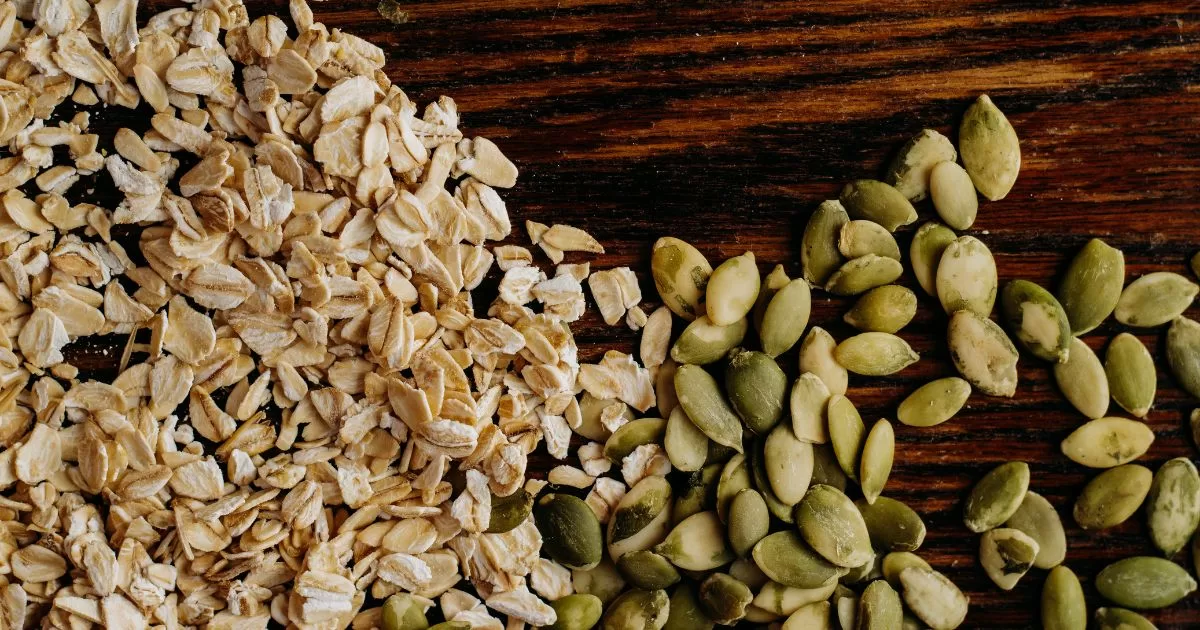A healthy heart is the primary and foremost requirement to have a healthy life. Also for those having diabetes, maintaining a healthy heart becomes even more significant. But you will be happy to know that, with a good heart healthy diet and pre diabetic diet, you can protect both your heart and manage blood sugar levels in a better way to avoid diabetes. Here in this article, we will explore the various diabetic-friendly diets that will also be beneficial for heart health.
Diabetes and heart health are interdependent to a large extent. Higher blood sugar can damage the blood vessels and your nerves over time if proper care is not taken. This will lead to various cardiovascular issues. By adopting a customized diet, you can manage blood sugar levels in a better way and minimize the occurrence of diabetes and the risks associated with heart disease.
Heart Healthy Diet With Prediabetic Condition
Prefer foods with Complex Carbohydrates
Foods rich in complex carbohydrates have more fiber and thus take longer time to digest. This will lead to a gradual and steady release of glucose into the bloodstream of our body. This reduces the wide fluctuations like extremely high or extremely low blood sugar levels in the body.
You can choose
- Whole grains like brown rice
- whole wheat
- quinoa
- oats.
They are excellent choices for natural fibers.
Additionally, You can include enough fiber-rich vegetables like broccoli, sweet potatoes, and leafy greens.
Take Enough Lean Proteins
Lean proteins play an important role in muscle building and providing essential amino acids for overall health. Always choose lean sources such as
- skinless poultry
- fish
- tofu
- legumes (like lentils and chickpeas)
- low-fat dairy products
These foods have low saturated fats and will not cause any wide fluctuations in blood sugar levels.
Go For Healthy Fats
Healthy fats are required for the overall well-being of our body. They are very much crucial to your heart health. You can choose foods like
- avocados
- nuts
- seeds
- olive oil
These foods are rich in monounsaturated and polyunsaturated fats. These fats can lower the levels of harmful LDL cholesterol and maintain good heart health. However, care should be taken to consume them in moderate amounts due to their calorie content.
Regulate your Portion
Having a regulated portion can control blood sugar levels to a large extent. Rather than taking large meals at a time prefer to have small meals at small intervals. This will help release the vitamins for heart health to your body slowly. This will also prevent overloading of the digestive system.
Always try to have a balance between carbohydrates, proteins, and fats in each meal. It will be better to measure the potion intake using measuring devices like cups or a food scale. This will help you to become more aware of your portion sizes.
It’s also important to eat slowly by chewing so that the saliva will mix with the food properly which will help in proper digestion and absorption of maximum nutrients from the food. One principle should be adopted: you should pay attention to hunger, not pleasure.
Also, Read 10 foods to eat to reduce blood sugar.
Minimize Processed Foods and Added Sugars
Generally processed Foods and beverages are high in added sugars to maintain the self-life. This high sugar intake will cause rapid spikes in blood sugar levels. The various processed foods include
- sugary snacks
- bakery items
- chips
- sodas
- many other processed foods
Always prefer natural sweeteners like honey or maple syrup in a controlled manner and focus on whole, unprocessed foods to minimize the percentage of added sugars in your diet.
Take enough fiber
Fiber is an important nutrient for persons with diabetes or who have a chance of diabetes. It helps to regulate blood sugar levels by slowing down the absorption of glucose in the bloodstream.
High-fiber foods also give a feeling of fullness to the stomach, which helps manage weight. Try to include a
- variety of fruits
- vegetables
- whole grains
- legumes
in your meals to increase your fiber intake.
Limit Sodium Intake
High sodium intake can lead to high blood pressure, which is a primary cause of heart disease. Always try to reduce your sodium intake by choosing fresh, whole foods over processed foods.
Also try different types of herbs, spices, and other natural flavoring substances to add taste to your dishes rather than using excess salt. In case you are taking salt try to have rock salt instead of sea salt.
Stay Hydrated
Adequate hydration is crucial for your overall health, including heart health. Water helps to maintain proper blood viscosity and helps all the organs and bodily systems to work efficiently.
This also helps to maintain the skin health and remove body waste. Have a target to drink at least 8 glasses (about 4 liters) of water every day. Adjust the water intake based on your physical activity and weather conditions to avoid dehydration.
Also include enough juicy fruits in your diet to maintain the water level along with providing other nutrients and vitamins.
Regular Exercise
You must be astonished why I have included this in your diet. Exercise is a natural medicine for diabetes management and heart health. Regular physical activity helps improve insulin sensitivity, control blood sugar levels, and strengthen the cardiovascular system.
Try to have at least 30 minutes of moderate-intensity exercise every day, followed by 2 hours of intense exercise on weekends.
Conclusion
While all the above steps are important, you should have your dietary changes gradually and consistently to avoid any sudden health impact. Little adjustments can lead to significant improvements in both your blood sugar levels and overall heart health. Always listen to your body and consult a dietician for professional guidance whenever necessary. They can modify your dietary recommendations according to your specific health circumstances, taking into account different factors like your age, physical activity level, medications, and any existing health conditions.
Also, Read Foods to eat for a healthy heart.
Frequently Asked Questions
Q1: Can I still enjoy sweets and desserts if I have diabetes?
A1: While it’s important to limit added sugars, you can still enjoy sweet treats in moderation. Opt for healthier alternatives like fruit-based desserts, and consider using natural sweeteners in your recipes.
Q2: Are there specific fruits I should avoid if I have diabetes?
A2: While fruits are a good source of nutrients, some are higher in natural sugars. It’s best to limit the consumption of fruits like grapes, cherries, and watermelon. Try lower-sugar options like berries, apples, and citrus fruits.
Q3: How can I add more fiber to my diet without increasing my carbohydrate intake?
A3: Select non-starchy vegetables, which are rich in fiber but lower in carbohydrates. Additionally, include more nuts, seeds, and legumes, as they are excellent sources of fiber and provide a range of health benefits.
Q4: Is it necessary to count carbohydrates for every meal?
A4: While it’s not always necessary to count every gram of carbohydrate, being aware of foods can be helpful. This knowledge allows you to make choices and manage your blood sugar levels in a better way.
Q5: Can I include dairy in a diabetic-friendly diet?
A5: Yes, dairy can be part of a balanced diet for individuals with diabetes. Choose a low-fat or non-fat variety, and avoid flavored yogurts as they have added sugar. If you’re lactose intolerant, you can take lactose-free alternatives like almond or soy milk.
Q6: What are some heart-healthy cooking techniques I can use?
A6: Always prefer cooking methods like baking, grilling, steaming, and sautéing with very little oil. These techniques will retain nutrients in the food without adding excessive calories or unhealthy fats.
Q7: How can I manage my blood sugar levels during physical activity?
A7: Check your blood sugar levels before and after exercise, and carry a fast-acting carbohydrate source in case you see a drop in blood sugar. Stay hydrated listen to your body’s signals and act accordingly.
Q8: Can I eat out at restaurants while following a diabetic-friendly diet?
A8: Yes, you can still enjoy dining out. Opt for grilled or baked lean proteins, choose vegetables or salads as sides, and ask for sauces or dressings on the side. Be careful about your portion sizes, and do not hesitate to share larger dishes.
Q9: How can stress affect my blood sugar levels and heart health?
A9: Stress can lead to fluctuations in blood sugar levels, so it’s important to practice stress-reducing techniques like meditation, deep breathing, and regular exercise. Chronic stress can also contribute to heart disease, so find healthy ways to cope with stress.



